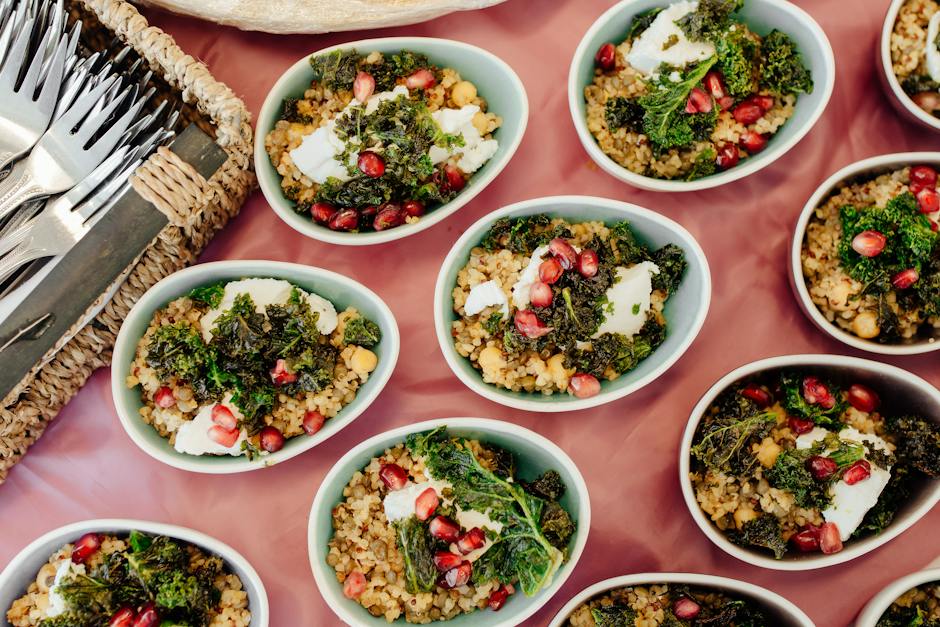Is Bulgur Gluten-Free? Unveiling the Truth About This Popular Grain
When it comes to maintaining a gluten-free diet, understanding which foods are safe to consume is crucial. Among the many grains scrutinized for their gluten content, bulgur often comes under the spotlight. This ancient grain, known for its nutty flavor and quick cooking time, is a staple in many cuisines. But is bulgur gluten-free? In this comprehensive guide, we’ll delve into the world of bulgur, explore its nutritional profile, and answer the most commonly searched questions about its gluten status. Whether you’re celiac, gluten-sensitive, or simply curious, this article will provide you with the insights you need.
What is Bulgur?
The Origins and Processing of Bulgur
Bulgur is a whole grain made from cracked wheat, most commonly from durum wheat. It has been a key ingredient in Middle Eastern cuisine for centuries. The process of making bulgur involves parboiling, drying, and then coarsely grinding or cracking the wheat kernels. This method not only imparts a distinct texture but also helps in preserving the grain’s nutrients.
Nutritional Benefits of Bulgur
Bulgur is lauded for its health benefits, including high fiber content, vitamins, and minerals. It’s a great source of plant-based protein and is low in fat. The grain also has a low glycemic index, which makes it a favorable option for blood sugar management.
Is Bulgur Gluten-Free?
Understanding Gluten in Grains
Gluten is a group of proteins found in certain grains, such as wheat, barley, and rye. It’s responsible for the elasticity and chewiness in doughs and is a common ingredient in many food products. For individuals with celiac disease or gluten sensitivity, consuming gluten can lead to various health issues.
The Gluten Content of Bulgur
Since bulgur is derived from wheat, it naturally contains gluten. Therefore, it is not a gluten-free grain and should be avoided by anyone with celiac disease or a gluten intolerance. However, for those without such sensitivities, bulgur can be a nutritious addition to a balanced diet.
Alternatives to Bulgur for a Gluten-Free Diet
Gluten-Free Grains and Their Uses
For those on a gluten-free diet, there are several alternatives to bulgur that can be used in similar culinary applications:
- Quinoa: A complete protein and versatile substitute for bulgur in salads and pilafs.
- Brown Rice: A whole grain that can be used as a base for stir-fries and stuffing.
- Millet: A small-seeded grain that can be cooked fluffy like rice or creamy like mashed potatoes.
- Buckwheat: Despite its name, buckwheat is gluten-free and can be used in porridges and as a rice alternative.
- Amaranth: A nutrient-rich grain that works well in soups and salads.
Tips for Preparing Gluten-Free Grains
- Rinse Thoroughly: Rinse grains before cooking to remove any dust or debris.
- Cooking Times Vary: Each grain has its own cooking time and water ratio, so follow package instructions.
- Experiment with Flavors: Gluten-free grains absorb flavors well, so experiment with herbs, spices, and broths.
Common Questions About Bulgur and Gluten
Is Bulgur Safe for Those with Gluten Allergies?
No, bulgur is not safe for individuals with gluten allergies or celiac disease due to its wheat content.
Can Bulgur Be Included in a Gluten-Free Diet?
Bulgur should not be included in a gluten-free diet. It’s essential to read labels and ensure that any grain or product is certified gluten-free.
How Can I Ensure I’m Eating Gluten-Free Grains?
Always purchase grains that are labeled as certified gluten-free. Cross-contamination can occur during processing, so certification provides an extra layer of safety.
Conclusion: Navigating the Gluten-Free Landscape
Navigating a gluten-free diet can be challenging, especially when it comes to understanding which grains are safe to consume. Bulgur, while nutritious for those without gluten sensitivities, is not suitable for a gluten-free diet. Fortunately, there are numerous gluten-free alternatives that offer similar textures and flavors, allowing for a diverse and enjoyable diet. By staying informed and vigilant about the foods you choose, you can maintain a healthy, gluten-free lifestyle without sacrificing taste or nutrition. Remember to consult with a healthcare professional if you have any concerns about gluten and your health.


